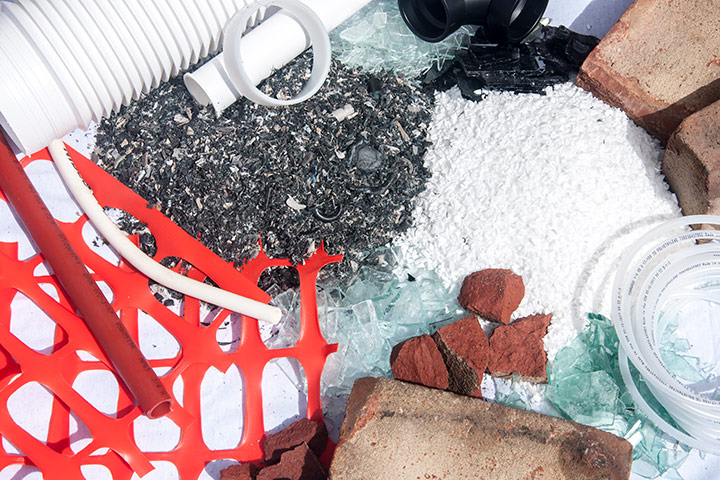Post Rock: Upcycled Building Material Sourced From Regional Waste
Post Rock: Upcycled Building Material Sourced From Regional Waste
Post Rock: Upcycled Building Material Sourced From Regional Waste
Program: Catalyst Grants
Program details » | All Catalyst Grants projects »

(This project is currently underway)
Project Team
Meredith Miller—U-M Taubman College of Architecture and Urban Planning (PI)
Volker Sick—U-M College of Engineering (Co-PI)
Christopher Humphrey—U-M Taubman College of Architecture and Urban Planning
Thom Moran—U-M Taubman College of Architecture and Urban Planning
Project Summary
Encouraging a more circular economy is a key strategy to combating climate change. Partnerships between research and siloed industries can help connect the dots, identifying new downstream applications that add value to upstream waste materials and capture carbon in long-lasting products. The Post Rock research initiative seeks to do just this by offering circular solutions for waste plastics and other materials through new architectural applications.
Post Rock, which grew out of a design-informed material research project initiated by Meredith Miller and Thom Moran in 2015, converts heterogeneous mixtures of polymers and aggregates into a composite building façade panel with energy performance and aesthetic properties. If current plans for commercialization succeed, it will be the only composite product on the U.S. building materials market with both a high level of recycled polymer content and the aesthetic variation that makes stone a beloved building material.
Post Rock has gone through two rigorous phases of customer discovery, focusing the material research development toward a specific end use. Now, with this new catalyst grant, the research team can take the critical next step toward commercialization: establishing a regional supply of source material, which potentially could fully comprise waste diverted from regional streams. Researchers plan to leverage the unique regional context of southeast Michigan and northwest Ohio, which offers a wide range of materials flowing through various industries.
In addition, this catalyst grant will support a new partnership between Taubman and U-M’s Global CO2 Initiative, employing the latter’s expertise in lifecycle assessment, repurposing of industrial waste, and carbon utilization. This collaboration will provide important validation of Post Rock’s environmental and economic benefits, encouraging consumer uptake by aligning reporting on the product’s impact with sustainability standards used in the architecture and building sectors.